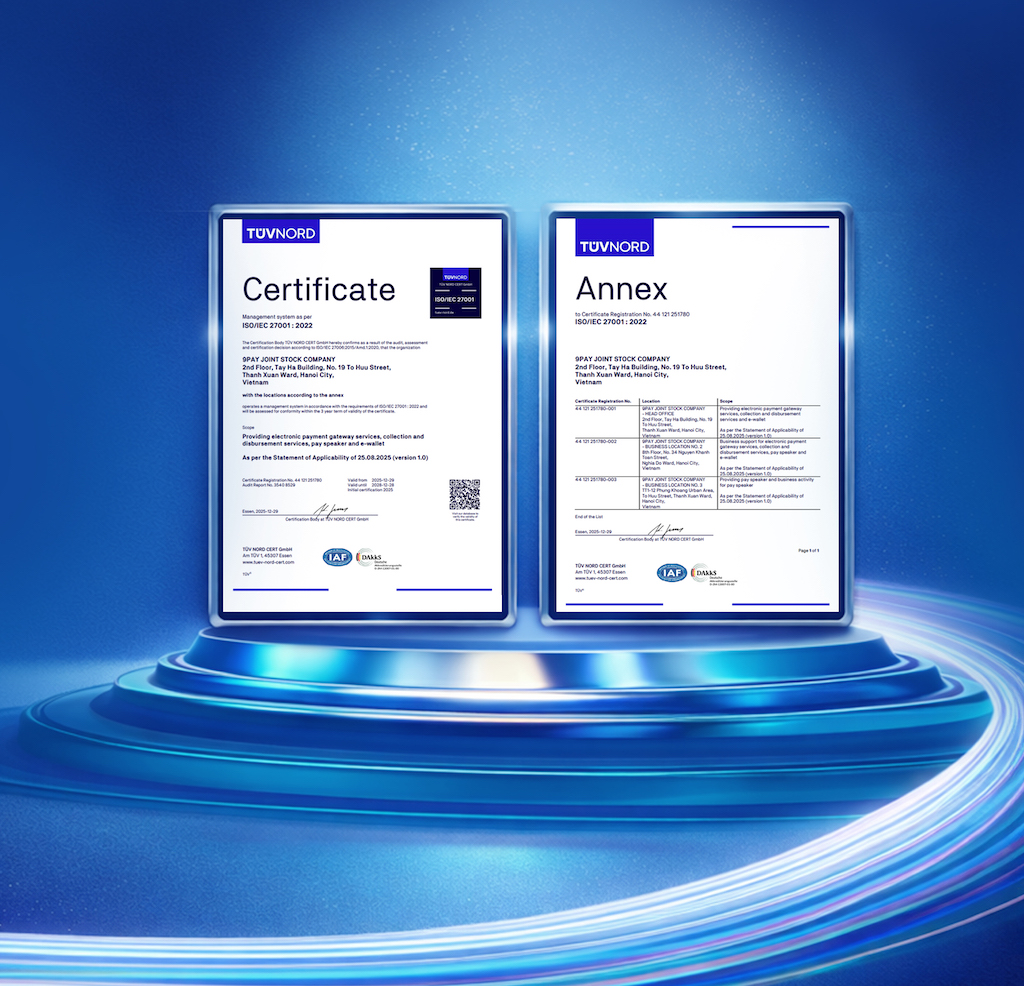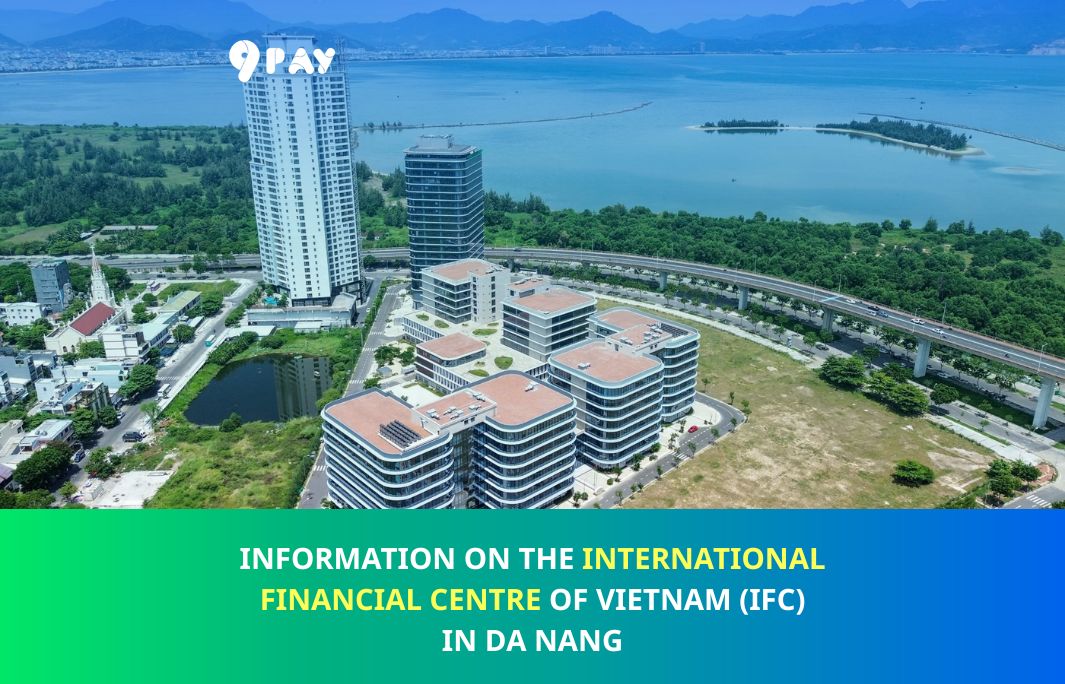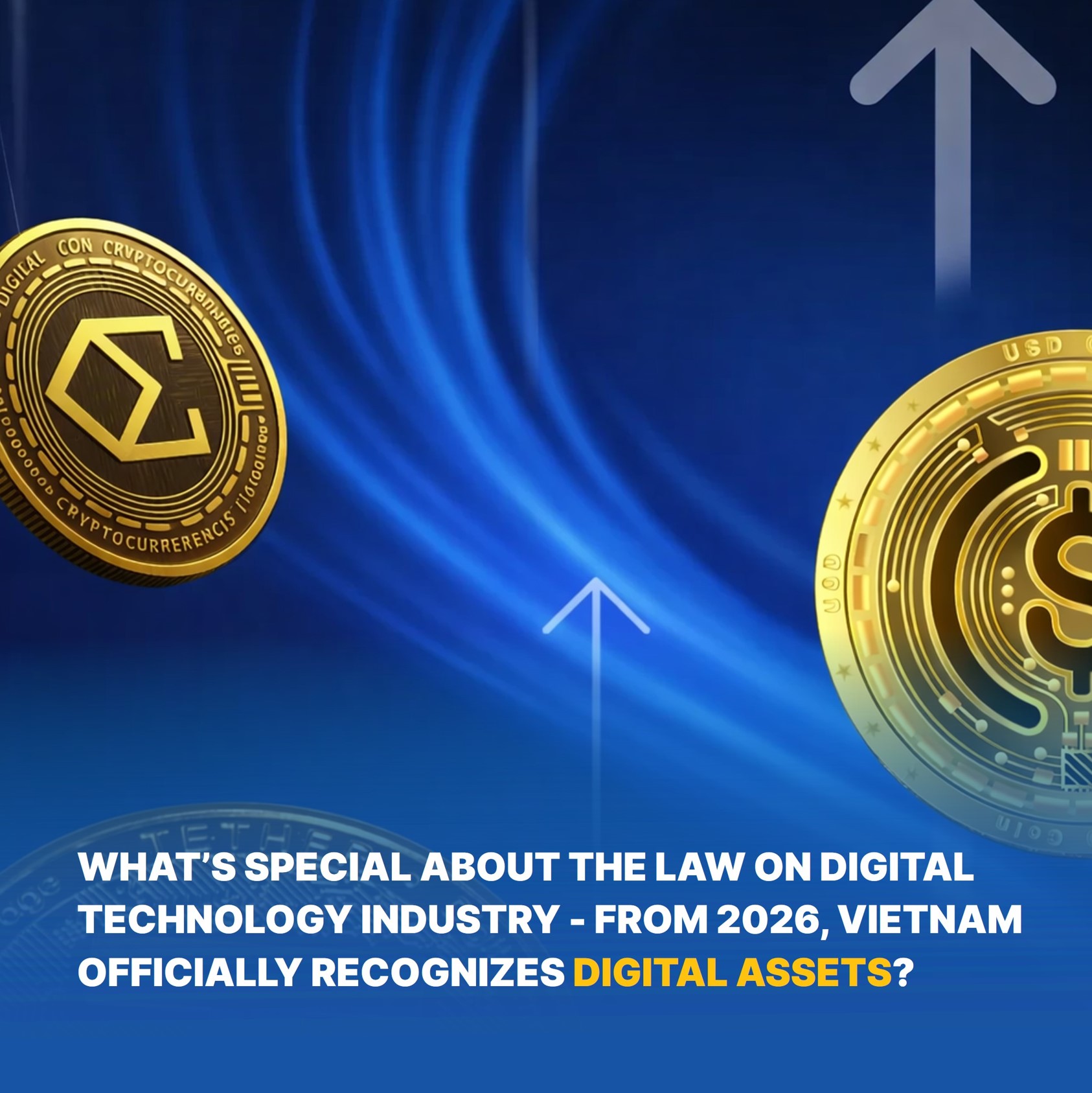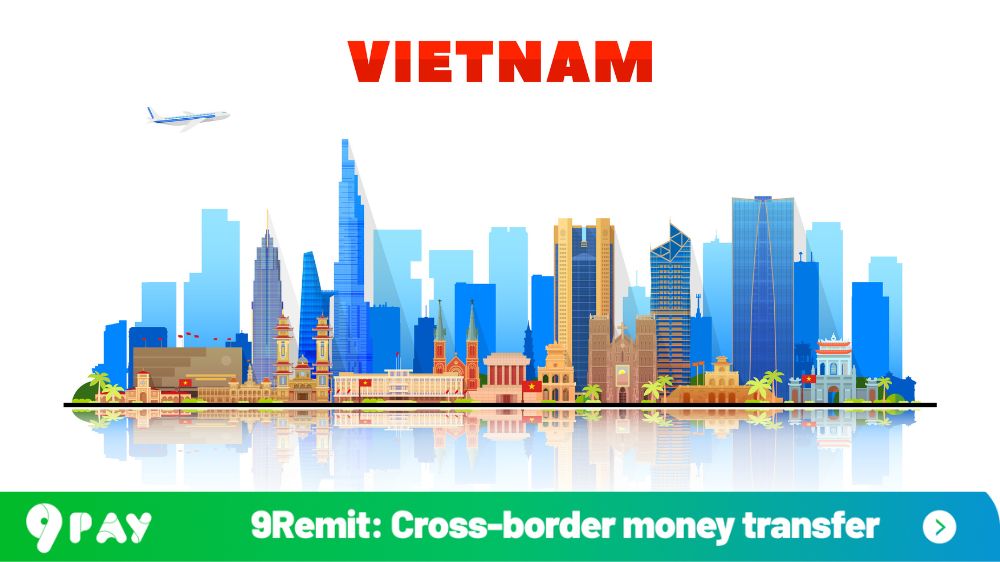How to simplify B2B cross border payments
By integrating 9Pay's 9Remit solution, businesses can streamline international payments, reduce costs, and improve cash flow management.
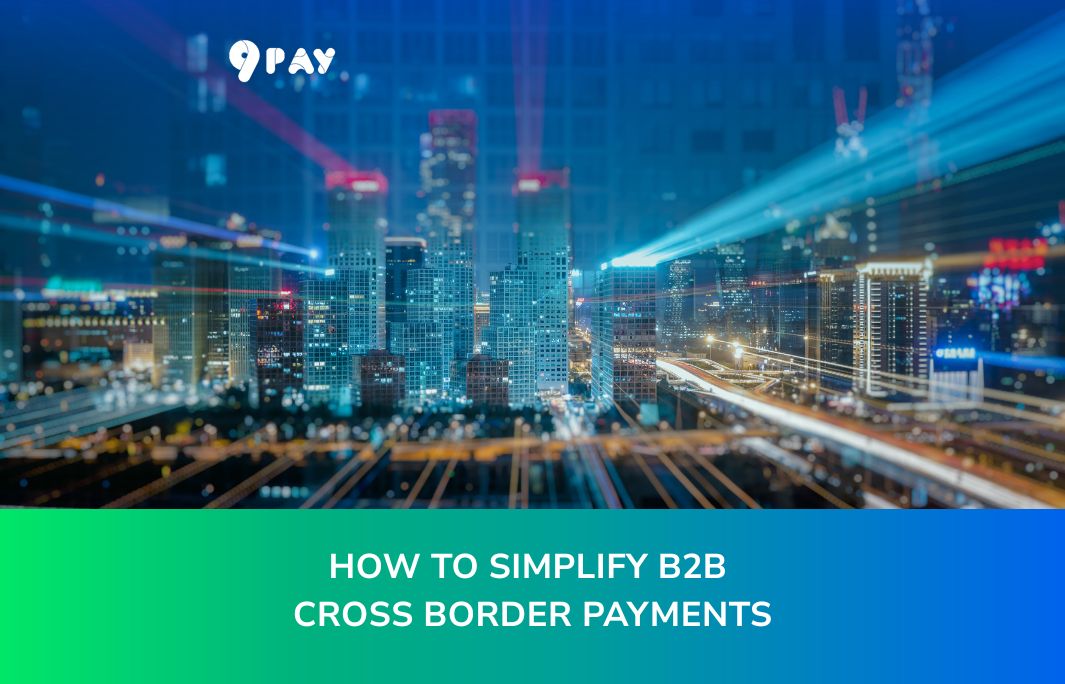
1. What are B2B cross-border payments?
B2B cross-border payments refer to financial transactions conducted between two businesses located in different countries. Unlike consumer-to-consumer (C2C) or business-to-consumer (B2C) payments, B2B transactions typically involve larger amounts of money, require greater transparency, and are subject to closer regulatory oversight.
Cross-border payments involve different currencies, banking systems and legal environments, making them qualitatively more complex. These payments facilitate international trade, global supply chains, and multinational operations, covering everything from vendor payments and supplier invoices to intercompany transfers and payroll for overseas employees.
2. B2B International payment methods
Businesses today use several payment methods for cross-border transactions, each with its own advantages:
Bank Wire Transfers (SWIFT): Traditional bank wire transfers via the SWIFT network represent the classic approach, depending on the Society for Worldwide Interbank Financial Telecommunication system for secure, global transactions - though they can drag on for days or weeks, rack up fees from intermediary banks, and leave you in the dark about exact costs and progress.
This method is reliable and broadly used, but it often takes a while to complete, comes with hefty charges from partner banks, and doesn't offer much clarity on fees or tracking.
International ACH (Automated Clearing House): Similar to domestic ACH, this allows for bulk payments, typically used for recurring transactions like payroll or vendor payments. It's generally cheaper than wire transfers but still relatively slow and not available in all countries.
Credit/Debit Cards (Corporate Cards): While convenient for smaller, ad-hoc international payments, corporate cards often come with high foreign transaction fees and may not be suitable for large B2B invoices due to processing limits and merchant fees.
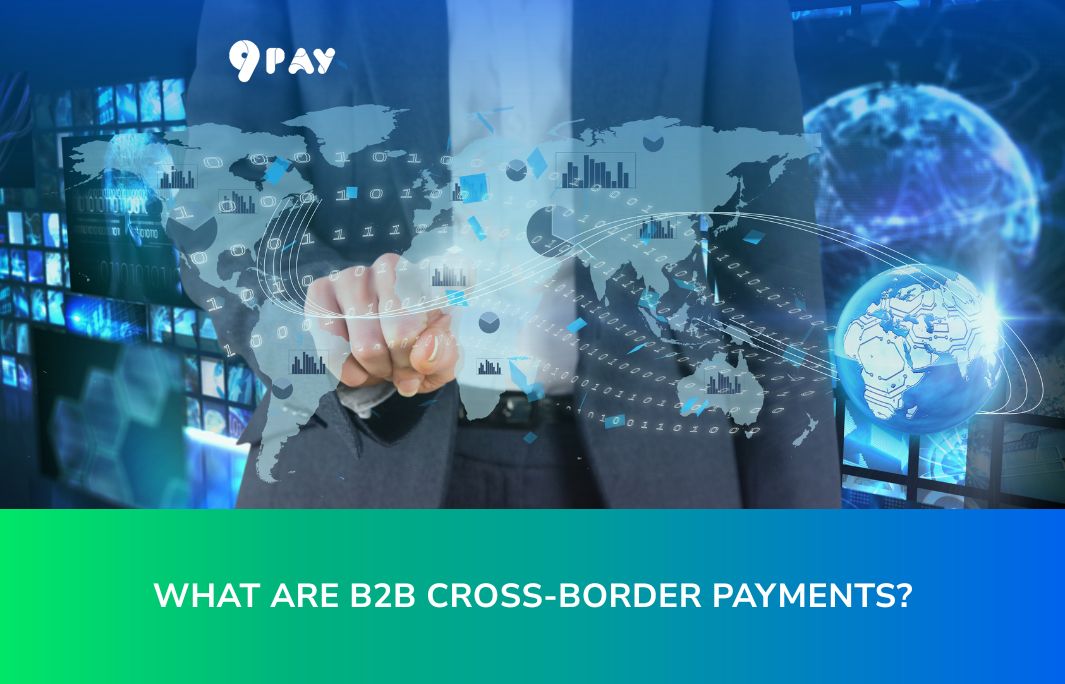
Online Payment Platforms/Fintech Companies: This group covers cutting-edge payment providers and fintech firms, such as 9Pay's 9Remit solution, that focus on international transfers and use tech innovations to deliver quicker, clearer, and more budget-friendly options compared to old-school banking systems.
These services harness advanced technology to provide swifter, more open, and frequently more economical choices than conventional banks, while supporting payments via a range of local payment options.
Digital Wallets (for B2B): Digital wallets, though mostly seen in consumer-to-business scenarios, are now branching out to support business-to-business needs in certain areas, enabling faster money movements to companies that are set up to receive them.
Blockchain/Cryptocurrency: This innovative technique uses blockchain or cryptocurrency to potentially deliver immediate, inexpensive transfers that skip the middlemen altogether.
Yet, challenges like price fluctuations, unclear regulations, and limited acceptance continue to pose major obstacles for everyday business-to-business applications.
Letters of Credit: A letter of credit is a financial document issued by a bank or financial institution on behalf of a buyer, guaranteeing payment to a seller upon the fulfillment of certain conditions. A letter of credit acts as a guarantee of payment in international trade transactions, providing security for both the buyer and seller.
A letter of credit offers significant advantages in terms of security and risk reduction. However, the high costs and complex processes involved in obtaining and using a letter of credit may not be appropriate for your business.
3. Common challenges in B2B coss-border payments
Although necessary for international business, coss-border payments can come with a range of operational, financial, and regulatory challenges. Here are some of the most frequent challenges:
Currency exchange complexities and volatility
Businesses encounter risks due to currency changes between payment initiation and receipt. Negative exchange rates can diminish profit margins, and a lack of transparency may result in unexpected expenses. Hedging or fixed-rate options are often necessary but can complicate matters.
Regulatory compliance and legal hurdles
Each country has its own rules regarding anti-money laundering (AML), know-your-customer (KYC), and tax compliance. Understanding these different legal requirements across regions demands expertise and strong compliance strategies, which can be challenging for companies.
High transaction fees and hidden costs
Traditional bank systems often involve multiple intermediaries, each charging a fee. These charges can add up, resulting in high costs that are not always clear from the start. Additional hidden fees, such as unfavorable exchange rate adjustments, further increase expenditures.
Delays and inefficiencies in payment processing
Cross-border transactions may take several days, especially when processed through legacy banking infrastructure, tying up money and slowing down business activities. Manual reconciliation, handling errors, and the absence of real-time tracking create inefficiencies that negatively affect cash flow management and operational planning.
Security and fraud risks
With international money transfers, the risk of data breaches, fraud, and unauthorized access increases, especially in low-security networks. Ensuring the security of sensitive financial data and protecting against unauthorized access is a constant concern for businesses engaging in international payments.
4. 9Pay's 9Remit solution simplifies B2B cross-border payments
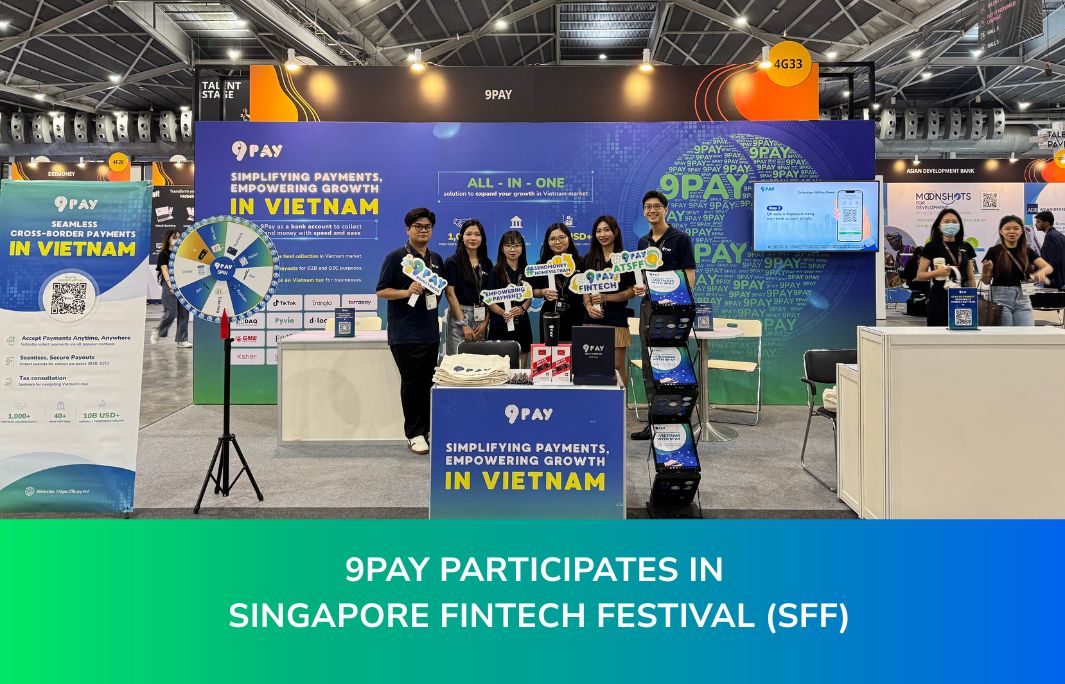
Addressing these complex challenges, 9Pay's 9Remit solution offers a sophisticated and streamlined approach to B2B cross-border payments, particularly for businesses transacting with or within Vietnam. Leveraging its licensed intermediary status and advanced fintech infrastructure, 9Remit is designed to transform the cumbersome process into a secure, efficient, and cost-effective experience.
9Remit acts as a bridge to help international businesses receive payments from Vietnam in the easiest way. It integrates seamlessly with a wide network of local Vietnamese banks and popular e-wallets, ensuring that funds can be disbursed rapidly and reliably to the intended recipients. By consolidating various payment rails and offering a unified platform, 9Remit simplifies the operational overhead for businesses, allowing them to focus on their core activities rather than payment complexities.
Key features of 9Remit for B2B cross-border payments include:
- Comprehensive Coverage: Access to Vietnam's diverse local payment methods, ensuring payments reach virtually any business or individual account.
- Automated Reconciliation: Tools for easy tracking and reconciliation of transactions, reducing manual effort and errors.
- Scalability: Solutions designed to handle varying transaction volumes, from small frequent payments to large one-off transfers.
- Dedicated Account Management: Support from experts to guide businesses through setup, integration, and ongoing operations.
5. FAQs about B2B Cross-Border Payments
What are the top payment intermediary companies in Vietnam?
Beyond traditional banks, leading licensed payment intermediary companies in Vietnam include:
9Pay: A prominent player known for its comprehensive e-wallet, payment gateway, and collection/disbursement services, international payment with a strong focus on cross-border solutions.
MoMo: The largest e-wallet, also offering payment gateway services for businesses.
ViettelPay: Backed by Viettel, offering a wide range of digital payment services.
ZaloPay: Integrated with the popular Zalo messaging app, focusing on mobile payments.
VNPay: Known for its extensive QR Pay network and payment gateway services.
These companies are licensed by the State Bank of Vietnam and play a crucial role in facilitating both domestic and international digital payments.
What are the limits of the amounts I can send money internationally with 9Pay?
For B2B international remittances through 9Pay's 9Remit solution, there is no limit on the volume of international payment transactions, all of which meet current regulatory requirements. You can consult directly with 9Pay's business development team to discuss your specific transaction volume needs and determine the limits applicable to your business model and industry.
What are the limitations on international money transfer to Vietnam from business entities?
Businesses must comply with Vietnam's foreign exchange management laws. Transfers must be for legitimate business purposes and supported by proper documentation. Working with licensed providers like 9Pay ensures all legal requirements are met.




